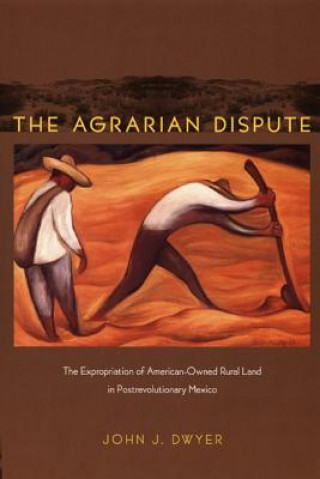
Livrare
Consilier de cumpărături





Nu se pretează? Nu contează! La noi puteți returna bunurile în 30 de zile
 Voucher cadou
orice valoare
Voucher cadou
orice valoare
Cu un voucher cadou nu veți da greș. În schimbul voucherului, destinatarul își poate alege orice din oferta noastră.
Agrarian Dispute
 engleză
engleză
 88 b
88 b
30 de zile pentru retur bunuri
Ar putea de asemenea, să te intereseze


In the mid-1930s the Mexican government expropriated millions of acres of land from hundreds of U.S. property owners as part of President Cardenas' land redistribution program. Since no compensation was provided to the Americans, a serious crisis that John J. Dwyer terms "the agrarian dispute" ensued between the two countries. Dwyer analyzes this conflict at the local, regional, national, and international levels in a nuanced way that combines social, economic, political, and cultural history. He argues that the crisis inaugurated a new and improved era in bilateral relations because Mexican officials were able to negotiate a favourable settlement and the United States, constrained economically and politically by the Great Depression, reacted to the agrarian dispute with unaccustomed restraint. Dwyer challenges prevailing arguments that Mexico's nationalization of the oil industry in 1938 was the first test of Roosevelt's Good Neighbor policy by showing that the conflict over land was the watershed event. Dwyer weaves together elite and subaltern history and highlights the intricate relationship between domestic and international affairs. Through detailed studies of land redistribution in Baja California and Sonora, he demonstrates that peasant agency influenced the local application of Cardenas' agrarian reform program, his regional state-building projects, and his relations with the United States. Dwyer draws on a broad array of official, popular, and corporate sources to illuminate the motives of those who contributed to the agrarian dispute, including landless fieldworkers, indigenous groups, small landowners, multinational corporations, labour leaders, state-level officials, federal policymakers, and diplomats. Taking all of them into account, Dwyer explores the circumstances that spurred agrarista mobilization, the rationale behind Cardenas' rural policies, the Roosevelt administration's reaction to the loss of American-owned land, and the diplomatic tactics employed by Mexican officials to resolve the international conflict.
Informații despre carte
 engleză
engleză




 Cum să cumpăr
Cum să cumpăr

























